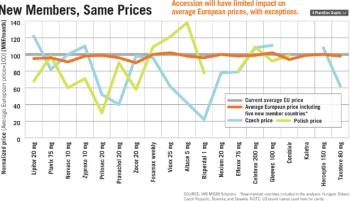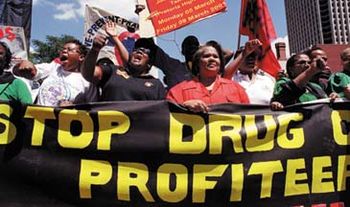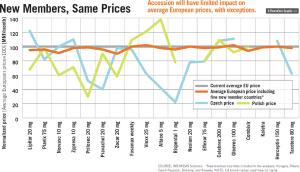
In 2003, Big Pharma produced only a dozen new drugs. At the same time, it came under new pressure to create value from those thin pipelines. In that "hot squeeze" of a climate, pharma companies needed price premiums for every product in every market. They were more successful in some countries than in others. Other pricing trends also took their toll.



